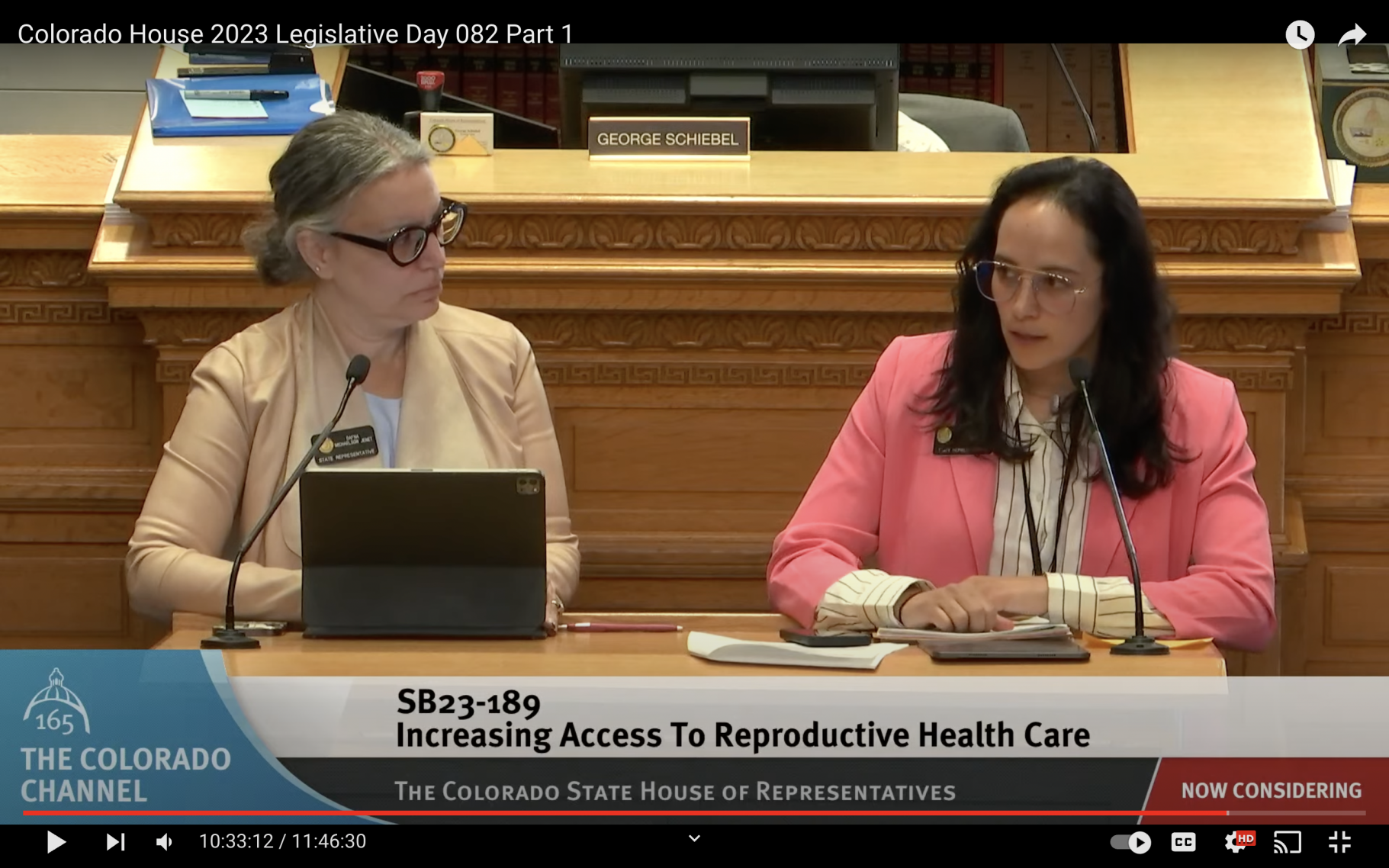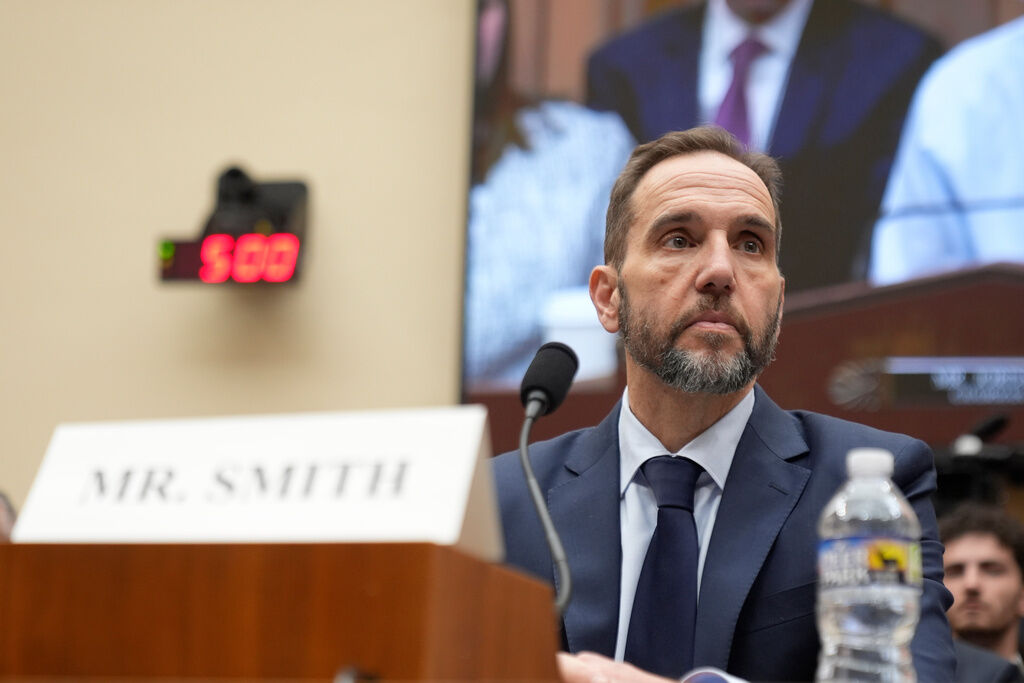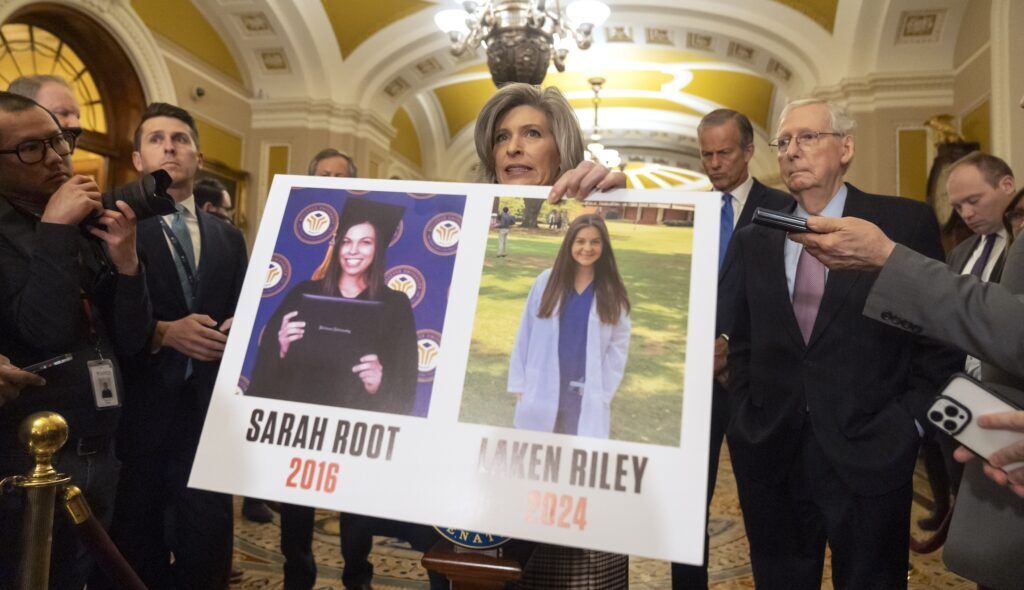Colorado Democrats advance bill to expand insurance coverage for abortions

Democrats advanced a bill Friday to expand insurance coverage for abortions, marking the third and final bill in a package intended to bolster abortion rights in Colorado.
If enacted, Senate Bill 189 would require health insurance carriers that serve large employers – those with more than 100 employees – to pay for abortion coverage without deductibles, copays or coinsurance, among other changes.
SB 189 passed the Senate last week. In a voice vote, House lawmakers approved the bill, sending it to its third and final reading scheduled on Saturday. If passed, the bill will be sent back to the Senate to approve any changes, and then to Gov. Jared Polis for final consideration.
After more than a year of trying to have a baby, Rep. Dafna Michaelson Jenet said she miscarried at 20 weeks pregnant. With no fetal heartbeat, her doctor sent her to a clinic to receive an abortion, saying she was at risk of becoming septic and dying if she continued to carry the baby. Though she had insurance, Michaelson Jenet said she had to pay $500 upfront for the procedure.
“I tell you this because abortion is part of the spectrum of care. Abortion is sometimes needed desperately. We might not know all of the reasons behind it,” said Michaelson Jenet, D-Commerce City, who is sponsoring SB 189. “The procedure saved my life.”
“How many people can go to the ATM and pull out $500? Not as many as you think,” she added.
Also under the bill, health insurance for the small group and individual market would provide abortion coverage depending on how it would affect premiums. If it has the potential to increase premiums, the state would technically be required to defray those extra costs. But an actuarial review of SB 189 said the bill would result in a minimal decrease in costs, around 15 cents per member.
The bill gives employers the option of refusing to offer abortion services if it conflicts with their religious beliefs, so long as the decision is in line with federal court decisions.
The insurance mandates would also apply to treatment for HIV and other sexually-transmitted diseases. The bill prohibits insurance from requiring HIV patients use step therapy, when patients must try a lower-cost drug before a more expensive one. And it prohibits insurance from requiring deductibles, copays, coinsurance, or imposing a lifetime maximum benefit for treating a sexually transmitted disease or for sterilization services.
Friday’s House debate on SB 189 was the shortest of any of the abortion-related bills, totaling less than three and a half hours, even though Democrats voted to allow up to six hours of debate.
In brief speeches, some Republican opponents raised issue with the bill for being “unfair,” pointing to its varying influence on different insurance plans and specific focus on reproductive health care instead of other health issues.
“Cancer, heart disease, lung disease, strokes, Alzheimer’s, suicide, diabetes, liver disease. Those people don’t get their health care for free. They’re still paying copays,” said Rep. Lisa Frizell, R-Castle Rock. “How is it okay for us to pick medical winners and losers here? How is it okay that we don’t acknowledge the things that are actually killing us in this state?”
Frizell said her mother died from cancer, “That’s a really expensive disease.”
Other critics of the bill spoke of a portion that expands the kinds of health care providers that can give contraception, supplies and information to a minor without parental consent or notification. Current law only lets physicians provide those services, but the bill would add, for example, nurse practitioners.
The bill also removes the requirement that, when a minor receives contraception services without notifying their parent or guardian, a notification be sent to someone who makes a referral for those services, such as a member of the clergy, family planning clinics, or schools or colleges.
While minors can already access contraception without parental consent or notification – and have been able to do so in Colorado since 1971 – some argued that these changes would further restrict parental rights.
“Every parent wants the best for their children. Every parent wants to be involved with their lives, their well-being, their health care,” said Rep. Anthony Hartsook, R-Parker. “Parents should be involved.”
On Friday, sponsors amended the bill to give insurance carriers until 2025 to enact the changes, as they are already preparing for their 2024 plans, said bill sponsor Rep. Lorena Garcia, D-Adams County. Garcia said this request came from the Division of Insurance.
Republicans introduced nine other amendments that sought to weaken the bill, including one to exempt abortions that are voluntary or not medically needed from being covered by insurance. All of those amendments were rejected.
“Colorado voters have said loudly and clearly over and over again that access to the full range of reproductive health care is something no one should mess with,” Garcia said. “Reproductive care is health care, and insurance should cover people’s health care.”
SB 189 is part of a package of bills seeking to strengthen abortion rights. The other two are Senate Bill 190 to crack down on the operations of crisis pregnancy centers and Senate Bill 188 to protect Colorado abortion patients and providers from out-of-state penalties.
SB 190 passed its second House reading on Thursday and SB 188 passed its second reading on Friday. All three bills are expected to face their third and final reading on Saturday.














